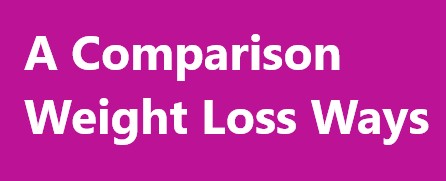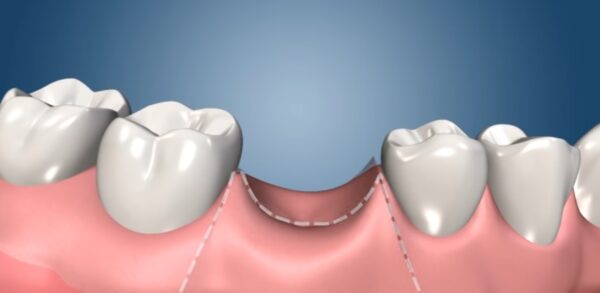What is Weight Loss Options?
There are many different weight loss methods available and some may be more effective or suitable for certain people than others. Here are some common weight loss methods:
- Caloric Restriction: This is one of the most common weight loss methods and it involves reducing the number of calories consumed through diet. To lose one pound of body weight, a caloric deficit of 3,500 calories is required. So, reducing daily caloric intake by 500 to 1,000 calories can lead to a safe and sustainable weight loss of 1 to 2 pounds per week. But, be aware severe caloric restriction can lead to muscle loss and a slower metabolism, which can make it harder to maintain weight loss over time.
- Physical Activity: Regular physical activity can help burn calories and promote weight loss. The American Heart Association recommends at least 150 minutes of moderate-intensity exercise per week for adults. One study found that combining physical activity with a healthy diet resulted in more successful weight loss than diet alone, with participants who combined both methods losing an average of 20 pounds over 12 weeks.
- Diet Modification: Making changes to the types of foods consumed can be an effective weight loss method. One study found that reducing intake of sugar-sweetened beverages and processed foods and increasing consumption of fruits, vegetables, and whole grains, resulted in a weight loss of 4.4 pounds over six months. Another study found that reducing overall calorie intake and increasing protein intake resulted in greater weight loss and fat loss compared to a standard diet.
- Behavior Modification: Changing habits related to eating can be an effective weight loss method. For example, one study found that practicing mindful eating, which involves paying attention to hunger and fullness cues and eating slowly, led to greater weight loss and improved eating behaviors. Another study found that controlling portion sizes and avoiding distractions during meals led to a greater reduction in caloric intake and weight loss.
- Medications: Certain medications may be prescribed to aid in weight loss. One commonly prescribed medication is Orlistat, which works by preventing the absorption of fat in the digestive tract. Studies have shown that Orlistat can lead to a weight loss of 5 to 10 percent of initial body weight over six to 12 months. But, be aware that medications may have side effects and are usually only recommended for people with a body mass index (BMI) of 30 or higher, or for those with a BMI of 27 or higher with other obesity-related conditions.
- Surgery: Bariatric surgery may be recommended for people with severe obesity and related health issues. One study found that people who underwent bariatric surgery lost an average of 60 percent of excess body weight within two years of surgery. But, surgery is a major procedure and is usually only recommended after other weight loss methods have been attempted without success.

Which is Most Effective Diet Program? Here is a Comparison
Some diet programs have been shown to be effective for weight loss and improving overall health. Here are a few examples and comparison:
- Mediterranean Diet: The Mediterranean diet has been extensively studied for its health benefits. One study found that people who followed a Mediterranean diet for two years lost an average of 4.4 pounds and had improvements in blood pressure, blood sugar control and cholesterol levels. Another study found that people who followed a Mediterranean diet for six months lost an average of 9.7 pounds and had improvements in insulin sensitivity and inflammation markers.
- DASH Diet: The DASH diet has also been studied for its health benefits. One study found that people who followed the DASH diet for eight weeks lost an average of 6.6 pounds and had improvements in blood pressure and cholesterol levels. Another study found that people who followed the DASH diet for six months lost an average of 15 pounds and had improvements in blood pressure and inflammation markers.
- Plant-based Diets: Plant-based diets have also been studied extensively for their health benefits. One study found that people who followed a plant-based diet for six months lost an average of 12 pounds and had improvements in blood pressure, cholesterol levels and insulin sensitivity. Another study found that people who followed a vegan diet for 18 weeks lost an average of 9.3 pounds and had improvements in blood sugar control and inflammation markers.
- Low-carbohydrate Diets: Low-carbohydrate diets have been shown to lead to rapid weight loss in the short term. One study found that people who followed a low-carbohydrate diet for six months lost an average of 24.5 pounds and had improvements in blood sugar control and triglyceride levels. But be awaere that long-term studies are limited, and the effects of low-carbohydrate diets on health are still being studied.
What Should You Consider About Choose A Diet Program?
Choosing a diet program can be a daunting task and there are several factors to consider to ensure you choose a program that is safe, effective and sustainable. Here are some things to consider when choosing a diet program:
- Safety: Choose a diet program that is safe and does not require drastic measures or extreme calorie restriction that could be harmful to your health. Programs that promote rapid weight loss or very low-calorie diets should be avoided as they may lead to nutrient deficiencies, dehydration and other health problems.
- Nutritional Adequacy: Choose a program that provides a balanced and varied diet with adequate amounts of essential nutrients such as protein, vitamins and minerals. Avoid diets that promote the exclusion of entire food groups or very low-calorie diets that may lead to nutrient deficiencies.
- Sustainability: Choose a program that is sustainable and can be maintained in the long-term. Look for programs that are flexible and can be adapted to your lifestyle, preferences and budget. Avoid diets that are too rigid or require drastic changes to your eating habits.
- Support: Choose a program that provides support and guidance from qualified professionals such as registered dietitians, personal trainers or health coaches. This can help you stay motivated and on track with your goals, as well as provide accountability and a source of reliable information.
- Evidence-based: Choose a program that is evidence-based and has been scientifically proven to be effective for weight loss and improving health. Look for programs that have been studied in well-designed clinical trials and published in reputable scientific journals.
- Personalization: Choose a program that is personalized to your individual needs, goals, and preferences. Programs that take into account factors such as age, sex, body composition, and activity level may be more effective than generic programs.
Is It Safe A Diet Program During Pregnancy?
It’s generally not recommended to start a weight loss program during pregnancy, as it can potentially harm the health of both the mother and the developing fetus. During pregnancy, it’s important to focus on a healthy and balanced diet that provides the necessary nutrients for both the mother and the baby.
The American College of Obstetricians and Gynecologists (ACOG) recommends that pregnant women who are overweight or obese aim for a moderate weight gain during pregnancy, rather than trying to lose weight. This is because losing weight during pregnancy may not be safe for the developing fetus.
But, for pregnant women who are considered obese, weight loss may be recommended to reduce the risk of certain complications, such as gestational diabetes, preeclampsia and preterm birth. According to a 2015 systematic review and meta-analysis published in the American Journal of Obstetrics and Gynecology, modest weight loss in obese pregnant women is safe and can improve maternal and fetal outcomes.
The review analyzed 44 studies involving 9,949 obese pregnant women and found that a modest weight loss of 1-4.4 pounds per week did not increase the risk of preterm birth, low birth weight or other adverse outcomes. In fact, the study found that obese women who lost weight during pregnancy had a lower risk of gestational diabetes, preeclampsia and macrosomia (large-for-gestational-age babies).
But, the study also noted that weight loss during pregnancy should be closely monitored by a healthcare professional and should not be too aggressive, as this may harm the developing fetus. The study concluded that a moderate calorie restriction of 300-500 calories per day, combined with exercise, may be a safe and effective way to achieve weight loss during pregnancy.

What Is The Best Exercies For Weight Loss?
There isn’t one “best” exercise for weight loss, as the most effective exercise for weight loss will depend on a person’s individual preferences, fitness level and overall health. That being said, a combination of aerobic exercise and strength training is often recommended for weight loss.
Aerobic exercise, also known as cardio, is great for burning calories and increasing cardiovascular fitness. Examples of aerobic exercise include walking, running, cycling, swimming and dancing. The American Heart Association recommends at least 150 minutes of moderate-intensity aerobic exercise or 75 minutes of vigorous-intensity aerobic exercise per week for overall cardiovascular health.
Strength training, on the other hand, is important for building muscle mass and increasing metabolism. Muscle tissue burns more calories than fat tissue, so increasing muscle mass can help to increase the body’s calorie-burning capacity even when at rest. Examples of strength training exercises include weight lifting, bodyweight exercises like push-ups and squats and resistance band exercises.
Incorporating both aerobic exercise and strength training into a regular exercise routine can help to maximize weight loss and overall health benefits. It’s also important to note that exercise alone is often not enough for significant weight loss – it’s important to also focus on a healthy and balanced diet.
We wish a healthy and happy life to you. You can fin which exercise is best for your age group and goals below:

